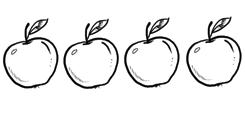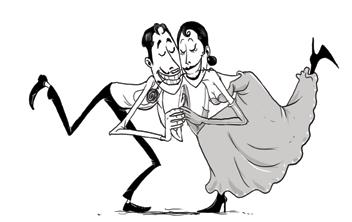Vrbica Matejić


Mr Vera
GRAMATIKA ENGLESKOG JEZIKA ZA SREDNJE ŠKOLE SA v E žb ANJ im A Edukapromo
Mr Vera Vrbica Matejić GRAMATIKA
ENGLESKOG JEZIKA
ZA SREDNJE ŠKOLE
SA v E žb ANJ im A
Glavni urednik Prof. dr boško vlahović
Predmetna urednica Doc. dr Nataša Filipović
Recenzenti Slađana Tanasijević, pedagoška savetnica, profesorka engleskog jezika Natalija Kantar, profesorka engleskog jezika i književnosti Olivera Grbić, profesorka engleskog jezika
ilustracije mladen Anđelković
Prelom Dragana Potkonjak
Lektorke Jelena žurić Natalija K antar Spomenka Tripković
izdavač EDUKA d.o.o. Beograd Ul. Zmaja od Noćaja br. 10/1 Tel./faks: 011/3287 277; 3286 443; 2629 903 Sajt: www.eduka.rs; imejl: eduka@eduka.rs
Za izdavača Nenad vlahović, direktor
Štampa Cicero, Beograd
Edukapromo
Izdanje br.: 1, Beograd, 2013. Tiraž 4000
Nije dozvoljeno: reprodukovanje, distribucija, objavljivanje, prerada ili druga upotreba ovog autorskog dela ili njegovih dela u bilo kom obimu ili postupku, uključujući i fotokopiranje, štampanje ili čuvanje u elektronskom obliku. Navedene radnje predstavljaju kršenje autorskih prava.
CIP - Каталогизација у публикацији Народна библиотека Србије, Београд 811.111'36(035.057.874)
ВРБИЦА Матејић, Вера, 1952Gramatika engleskog jezika : sa vezbanjima za srednje škole / Vera Vrbica Matejić ; [ilustracije Mladen Anđelković].1. izd. - Beograd : Eduka, 2013 (Београд : Цицеро). - 247 str. : ilustr. ; 30 cm Tiraž 4.000. ISBN 978-86-6013-151-7
COBISS.SR-ID 199868940

Sadržaj
Reč autorke | 5
Fonetika engleskog jezika (English Phonetics) | 7
Morfologija engleskog jezika (English Morphology) | 10
Sintaksa engleskog jezika (English Syntax) | 19
Uobičajeni red reči u rečenici (Word Order) | 19
Obrnuti red reči u rečenici (inverted Word Order) | 28
Vrste rečenica (Types of Sentences) | 32
Vrste reči (Parts of Speech) | 36
Imenice (Nouns) | 36
Zamenice (Pronouns) | 47
Pridevi (Adjectives) | 54
Član (Article) | 63
Prilozi (Adverbs) | 73
Brojevi (Numerals) | 79
Kvantifikatori (Quantifiers) | 84
Predlozi (Prepositions) | 88
Veznici (Conjunctions) | 94

Glagoli (verbs) | 99
Nefinitni (nelični) glagolsk i oblici (Non-Finite verb Forms) | 100
Edukapromo
Infinitiv (infinitive) | 100
Gerund (Gerund) | 106
Participi (Participles) | 111
Pomoćni glagoli (Auxiliary verbs) | 117
Modalni glagoli (modal verbs) | 119
Glagolska vremena i glagolski vid (Tense and Aspect) | 131
Sadašnje prosto vreme (The Present Simple Tense) | 131
3
Sadašnje trajno vreme (The Present Progressive [Continuous] Tense) | 136
Prošlo prosto vreme (The Past Simple Tense) | 141
Prošlo trajno vreme (The Past Progressive [Continuous] Tense) | 147

Sadašnji perfekat (The Present Perfect Tense) | 151
Sadašnji trajni perfekat (The Present Perfect Progressive [Continuous] Tense) | 158
Prošli perfekat (The Past Perfect Tense) | 163
Prošli trajni perfekat (The Past Perfect Progressive [Continuous] Tense) | 167
Buduće prosto vreme / Be Going To (The Future Simple Tense) i be Going To | 170
Buduće trajno vreme (The Future Progressive [Continuous] Tense) | 176
Budući perfekat (The Future Perfect Tense) | 178
Budući trajni perfekat (The Future Perfect Progressive [Continuous] Tense) | 181
Glagolski način (Mood) | 183
Imperativ (imperative) | 183
Konjunktiv (Subjunctive) | 186
Kondicional (Conditional) | 190
Trpno stanje (Pasiv) (Passive Voice) | 198
Neupravni govor (Reported Speech) | 202
Konstrukcije glagola HAVE sa akuzativom, infinitivom i participom (Causative HAVE) | 212
Edukapromo
Disjunktivna pitanja (Question Tags) | 216
Lista nepravilnih glagola (Irregular Verbs) | 220
Frazni glagoli (Phrasal Verbs) | 225
Rešenja (Key) | 233
4
Reč autorke

Nastavniku
Ova gramatika nastala je kao rezultat dugogodišnjeg rada sa učenicima. Namenjena je učenicima i nastavnicima srednjih škola. Gramatika iscrpno pokriva sve oblasti neophodne za uspešno učenje engleskog jezika, odgovara planu i programu Ministarstva prosvete i prilagođena je uzrastu učenika kojima je namenjena. Cilj Gramatike je da olakša i samostalni rad učenika i rad nastavnika u učionici.
Različito predznanje učenika predstavlja problem svakom nastavniku jezika. Svest o ovom problemu nameće pitanje nivoa i obima gradiva gramatike za srednju školu. Ideja nam je bila da učenicima koji žele da nastave studije jezika ponudimo odgovore na najveći broj dilema, ne gubeći iz vida ni učenike sa skromnijim predznanjima. Trudili smo se da svaka nastavna jedinica sadrži kako osnovne informacije, tako i nadgradnju, tako da svaki učenik može da napreduje svojim tempom.
Stalno učenje, usavršavanje i istraživanje čine poziv svakog nastavnika izazovnim. Stoga nastavnici mnogo vremena provode sakupljajući delove informacija iz različitih udžbenika i gramatika. Želja nam je bila da nastavnicima olakšamo rad pružajući im sav potreban materijal na jednom mestu. Stoga smo se odlučili da ova gramatika ujedno bude i radna sveska sa vežbanjima tako da nastavnici ne moraju da za svaki čas osmišljavaju vežbanja.
Polazeći od pretpostavke da se uvođenje nastavne jedinice planira u okvirima četrdesetpetominutnog časa, trudili smo se da udžbenik koncipiramo tako da se teorijski deo dužih nastavnih jedinica može predstaviti u trajanju jednog, a vežbanja se mogu uraditi u trajanju drugog časa ili kao domaći zadatak. Da bi se obradile kraće nastavne jedinice zajedno sa vežbanjima, dovoljan je jedan školski čas. Ovo je važno da bi se na kraju časa osetilo zadovoljstvo postignuća.
Edukapromo
Naglasak Gramatike je na opisivanju načina na koji prirodni govornik engleskog jezika upotrebljava jezik da bi komunicirao sa drugima.
Odlučili smo se da udžbenik bude napisan na maternjem jeziku tako da nepoznavanje gramatičkih pojmova na stranom jeziku, dok savladava gramatičke strukture, učeniku ne predstavlja dodatni problem. Važne gramatičke termine dali smo dvojezično, sa namerom da učeći gramatiku učenik usvoji i najveći broj neophodnih gramatičkih pojmova i na engleskom jeziku. Pošto jedan broj nastavnika u srednjoj školi koristi tradicionalne nazive, a imajući prvenstveno u vidu učenika koji prati nastavu i uči između ostalog i za ocenu, u nekim slučajevima smo, pored savremenih, ostavili i tradicionalne nazive. Takođe
5
smo svesni toga da se u nastavi znanje učenika često vrednuje na tradicionalan način, da se u školama pasiv uvežbava transformacijom rečenica, pa smo se stoga odlučili da nastavnu jedinicu Pasiv obradimo i na ovaj način.
Da bismo olakšali proces učenja, a da bi udžbenik delovao motivaciono, vežbanja su gradirana od veoma jednostavnih ka komplikovanijim, kako po zahtevima tako i po vokabularu. Takođe smo imali u vidu to da najveći broj nas pamti vizuelno, te smo uvrstili veliki broj tabela i crteža.
Naš stav je da gramatika i jezik ne treba da budu sami sebi cilj, već da služe kao sredstvo koje će nam omogućiti da steknemo šira znanja i komuniciramo sa drugim ljudima. Trudili smo se da udžbenik obogatimo mudrim, poučnim poslovicama, veselim izrekama, porukama i ilustracijama, a da bismo sadržaj približili uzrastu tinejdžera, mnogi primeri i vežbanja prilagođeni su temama o kojima razgovaraju mladi.
Udžbenik je jasno koncipiran, te nije potrebno dodatno uputstvo za njegovo korišćenje.
Učeniku

Poznavanje engleskog jezika je danas neophodnost. To je jezik mladih, jezik interneta i Fejsbuka; jezik koji nam omogućava da dođemo do informacije; jezik popularne muzike i pre svega komunikacije. Poznavanje gramatike engleskog jezika pomaže nam da komuniciramo preciznije, tačnije, brže i bolje.
Često sam u svojoj praksi čula učenike kako govore da se, kad govore strani jezik, oslanjaju na sluh. Činjenica je da svi mi imamo različita interesovanja, različite sklonosti, različite sposobnosti i talente i da zaista nekome učenje jezika ide lako. Ali uvereni smo da svako može da nauči da ispravno govori. Da bi se jezik govorio ispravno, potrebno je da se ne oslanjamo na sluh već na pravo znanje.
Nema svrhe učiti gramatiku radi nje same. Smatramo, ipak, da je neophodno poznavati pravila, a da je potrebno da svako od nas vežba onoliko koliko je neophodno dok njihova primena ne pređe u automatizam.
Edukapromo
Ovaj udžbenik je namenjen onim učenicima koji imaju volje i žele da sami ovladaju neophodnim znanjima. Njima su na raspolaganju objašnjenja, vežbanja i rešenja. Uvereni smo da će im to biti od pomoći.
Svaki udžbenik je rezultat timskog rada. Veliku zahvalnost dugujem nesebičnoj pomoći i podršci profesora engleskog jezika: Nataliji Kantar, Slađani Tanasijević, doc. dr Ivani Trbojević kao i timu Eduke na čelu sa Natašom Filipović.
Knjigu posvećujem Đorđu, Iris, Bojani, Eleni, Milošu, Ivani, Luki, Tari i Miji.
6
Član (Article)
U engleskom jeziku član je leksički prazna, funkcionalna reč. Iako nema leksičko značenje, ima gramatičko značenje određenosti i neodređenosti. Član određuje imenicu kao određenu ili neodređenu. Mesto člana u rečenici jeste ispred imenice (a boy) ili ispred prideva koji opisuju imenicu (the clever boy).
Određeni član (The Definite Article “the“)


Određeni član the izgovara se različito, zavisno od toga da li reč koju određuje počinje samoglasnikom ili suglasnikom. Ovo pravilo se odnosi na izgovor reči, a ne na pisanje.
THE / ð/ THE / ði: / teacher woman house man useful book European

Upotreba
A cat sat on the mat and watched a mouse as it ran across the floor to the door.

English teacher orange old woman hour honest man Irish person
1. Ispred imenice koja označava pojam koji je poznat i govorniku i slušaocu/sagovorniku. Open the window. Pass me the pan. Did you have fun at the party?
Edukapromo
2. Ispred imenice koja označava osobu, stvar ili pojavu koja je kao takva jedinstvena. The sun is in the sky. The president is in Belgrade. the universe, the world, the earth, the moon, the sky, the ground, the equator, the North Pole, the present, the past, the future.
3. Ispred imenica koje su već spomenute u prethodnom kontekstu. Once upon a time there was a beautiful princess. The princess lived in a castle. The castle had a high wall. The wall was…
63
4. Ispred imenice: a) iza koje je predloška fraza: the roof of the house the summer of 2005 the house at the corner the books on the top shelf the workshop next to the railway the wedding of their cousin b) iza koje je odnosna rečenica (relative clause): The workers who were digging the ditch were paid yesterday. This is the room that used to be grandpa’s. The Mr. Brown you told me about. The London I remember.

5. Ispred reči koje označavaju stepen poređenja: a) ispred superlativa: the most, the best, the latest b) ispred komparativa proporcije koji pokazuje paralelno povećanje, smanjenje ili povećanje i smanjenje: The sooner the better. The more I learn, the more I know. The more I study, the worse marks I get.
6. Ispred rednih brojeva. the first, the second Elizabeth II March 23rd (March the twenty-third)
7. Ispred nekih prideva koji tako postaju zbirne imenice i označavaju grupu ljudi sa istom karak teristikom. the poor, the rich, the brave
8. Ispred imena porodice, da označi porodicu kao celinu. the Smiths, the Browns
Edukapromo
9. Ispred prideva koji označavaju etničku pripadnost. the French, the English
10. Ispred geografskih pojmova. okeani – the Atlantic, the Pacific Ocean mora – theAdriatic, the Mediterranean Sea prirodni kanali – the English Channel prokopani kanali – the Suez Canal zalivi – the Persian Gulf poluostrva – the Balkans
64
pustinje the Sahara doline – the Sava Valley planinski venci – the Alps, the Urals, the Rockies grupe jezera – the Great Lakes
11. Ispred naziva država i geografskih regija koji se sastoje od više reči ili označavaju množinu, kao i ispred zvaničnih naziva zemalja. the United Kingdom (The U.K.), the United States (the U.S.A.), the Netherlands, the Middle East (Bliski istok), the Far East (Daleki istok), the Republic of Serbia
12. Ispred naziva zgrada, institucija, hotela, restorana, pozorišta, bioskopa, spomenika, brodova, vozova. the Houses of Parliament the Moscow (hotel) the Russian Tea Room, the Four Seasons Restaurant the Odeon (cinema) the Yugoslav Drama Theatre, the Shakespeare Memorial Theatre the Tate (Gallery), the National Gallery, the Fresco Gallery the British Museum, the National Museum the Statue of Liberty, the Victor the Titanic, the Queen Elisabeth II (two) the Golden Arrow, the (London) Underground, the Tube
13. Ispred naziva strana sveta. England is to the north-west of Europe. The wind blows from the north. Ako je strana sveta priloški upotrebljena, onda se član ne upotrebljava: They went north. (U pravcu severa.)
14. Ispred sledećih delova dana. in the evening, in the afternoon, in the morning, during the day, during the night.

15. Ispred naziva dnevnih novina. the Independent, the Guardian, the Daily Mirror
Edukapromo
16. Ispred imena jezika kao deo fraze. the English language, the French language, the Italian language; kad stoji samostalno, onda: English, French, Italian.
17. Ispred vlastitih imenica ako se odnose na poznatu osobu.
A: Mr. Pit phoned. B: The Pit? (Misli se na poznatog glumca Breda Pita.) A: Mr Smith asked for you. B. The Smith? (Smit koga oboje poznajemo.)
65
18. Ispred same, only, last. Men and women do not have the same wages there. This is the only problem. That was the last straw that broke the camel’s back. Ispred very kad želimo nešto da naglasimo. She was standing at the very place where she had been ten years ago.
19. Ispred muzičkih instrumenata kad se misli na aktivnost sviranja. Can you play the piano? We shall learn the violin. Ali: I have a piano.
20. Da označi vremenski period. the sixties, the seventies, the eighties an apple a day


Neodređeni član (The Indefinite Article) “a”, “an” //
Edukapromo
Neodređeni član se koristi samo uz imenice u jednini. Neodređeni član ima dva oblika: a i an. Oblik an koristimo ako reč počinje samoglasnikom. Ovo pravilo se odnosi na izgovor reči a ne na pisanje!
/ teacher peach woman house man useful book university European
English teacher orange old woman hour honest man heir honour Irish person
Upotreba
1. U značenju 1 (jedan): a) A stitch in time saves nine. There is a pen on the desk. I want a cup of coffee. a Serb, an Italian b) uz brojne imenice: (a hundred, a thousand, a million, a billion, a dozen [12], a score [20], a half,
66
/
a third, a quarter):
I’ve read a hundred pages. The city has about a million inhabitants. She has bought a dozen eggs. It costs a million and a half.

c) uz imenice i fraze koje označavaju vreme, razdaljinu, težinu, cenu, brzinu i učestalost itd.: Only a week remains and not a minute must be lost. They live a mile form here. She bought a pound of sugar. She was selling it at 40p a kilo / a meter. She drove the car at 30 miles an hour. I meet him at least once / twice / three times a day.
2. U značenju any (bilo koji) i every (svaki). Take a chair. (any chair) A cat catches mice. (any/every cat)
3. Ispred vlastitog imena, u značenju „izvesni” (a certain).
A Mr. Pott rang you up. (neki, izvesni gospodin po imenu Pot)
A Mr. Brown wants to talk to you.
4. U značenju isti.
They are of an age. Birds of a feather flock together.
5. Uz imenice koje označavaju zanimanje, rang ili nacionalnost, posle glagola be i become. Her father became a doctor when he was 32. Jack’s brother is a colonel in the army. Mary’s husband is a Frenchman. He wants to be a teacher.
6. K ada nešto želimo da naglasimo (posle many, such, quite, rather, what, too, uz imenicu u jednini).
Many a visitor was disappointed with the show. He is too good a photographer to work for that magazine. Such a woman is never happy. What a nice fellow he is!
Edukapromo
What a pity! She is quite a nice looking girl. It was rather a surprise.
7. A few and a little, u značenju nekoliko i nešto malo.
Would you like a little champagne? Give me a little time. His theory is very difficult. Nevertheless, a few people understand it.
67
8. U izrazima kao što su:
It’s a pity. Be in a hurry Be at a loss All of a sudden
Član se ne upotrebljava u sledećim slučajevima:
Edukapromo
1. ispred vlastitih imenica a) imena osoba – Where is Fred? Ali: Ivan the Terrible, Solomon the Wise. b) imena kontinenata i pojedinačnih naziva zemalja – Europe, Africa, Asia, South America; England has always had good relations with Greece. c) imena gradova – Paris is the capital of France. Izuzetak je The Hague d) imena ulica – Oxford St., Karađorđeva St., ali: The Strand (in London), the Mall (in Washington DC) e) imena trgova – Trafalgar Square is not far from Piccadilly Circus. f) imena parkova – Hyde Park is best-known for its freedom of speech. g) imena mostova – Tower Bridge, Golden Gate Bridge h) imena železničkih stanica – Victoria (Station), Waterloo (Station) i) imena jezera – Michigan, Ontario, ali grupe jezera imaju određen član: The Great Lakes ili the Lake of Ohrid. j) imena pojedinačnih planina i planinskih vrhova: Triglav is the highest peak in the Julian Alps. Mt Everest is the highest peak in the Himalayas. k) ispred pojedinačnih imena jezera – Ohrid (ali, the Lake of Ohrid – vidi Određeni član: 4.)

2. ispred apstraktnih imenica upotrebljenih uopšteno, kao što su life, time, beauty, music, art, pride: Beauty is only skin-deep. Most people are fond of music. Ali: The music of Chopin is beautiful. Time is money. Ali: What’s the time, please? Life is short. Ali: The life of many people during the war was hard.
3. ispred gradivnih imenica upotrebljenih uopšteno:
Iron is the most important metal. The table is made of wood. Cotton is not as warm as wool. We had chicken for dinner. Give me a glass of water, please. I’ll take bread and butter.
68
Izostavljanje člana – nulti član (Zero Article)
Ako ne govorimo uopšteno, nego mislimo na nešto određeno, ispred gradivnih imenica stavlja se član:
The bread is on the table. The water in the jug is fresh. Pass me the sugar, please. The meat is tough and the beer is stale.
4. ispred imenica kao što su: school, college, church, hospital, court, prison, jail, work, sea, market i neke druge kada se ne odnose na mesto ili zgradu, već na aktivnost koja se tu odigrava: School begins at 8. Ali: The school is round the corner. The thief spent 2 years in prison. Ali: He went to the prison. (for a visit) John was in hospital for 5 weeks. Ali: I went to the hospital to visit John. They were at table when we came. Ali: The table was covered with food. Children go to bed early. Ali: He left the book on the bed.
5. ispred reči man kada označava ljudsku rasu i woman kad označava sve žene: Man is mortal. Woman is cleverer than man.
6. ispred imena bliskih osoba kad im se direktno obraćamo: Good night, Mother / Father / Sister / Cousin John. Come in, Doctor. How is Baby? Teacher is coming.
7. ispred adverbijalnih superlativa: Cacti grow best in sandy soil. He speaks most cleverly.
8. ispred apozicija, posebno kad predstavljaju titule: Mary, Queen of Scots Dr Smith, Head of the English Department
Edukapromo
9. ispred: most, last, next: Most people know the news. (neodređen broj ljudi) We had a meeting last Tuesday and we’ll have another next Friday. Kada govorimo o sledećoj nedelji, mesecu, godini koji slede posle tekuće nedelje, meseca ili godine, onda se ne stavlja član.
10. ispred sledećih delova dana: by day, by night at night, at noon, at midnight, at dawn towards evening until midnight She works from morning till night.

69
11. ispred naziva dana, meseca, godišnjeg doba, praznika: Friday doesn’t suit me. New Year’s Day and May Day are national holidays. We spent August at the seaside. Summer comes after spring. Ali: They got married on the Friday before New Year’s Eve. The July of 1975. (Ako iza ovih imenica sledi predloška fraza.)
12. ispred imenica koje označavaju obroke (osim kada mislimo na određeni obrok): Dinner is ready. Ali: The dinner she served was delicious. What do you have for breakfast? Ali: The breakfast we had at Mike’s place was delicious.
Edukapromo

13. ispred naziva za sportove, školske predmete, jezike: He goes in for football. She plays tennis. Do you like history? Ali: Not much. But I do find the history of the Middle Ages interesting. He speaks English.

14. ispred paralelnih struktura: They danced cheek to cheek. They walked hand in hand. They talked face to face. They strolled through the garden arm in arm. Your day-to-day progress is astounding. We examined the neighbourhood house by house. The animals came in two by two I Popuni prazna mesta u sledećim rečenicama koristeći a ili the. 1. Pass me ....................... salt and, please, pass me ....................... bread. 2. Can I have ....................... look? 3. ....................... car on ....................... right is cheaper than ....................... car on ................. left. 4. more I dance ....................... better I feel. 5. Open ....................... door and close ....................... window. 6. I can see ....................... man in the street. ....................... man is wearing ....................... black coat. 7. sun is setting and ....................... night is falling. 8. She is ....................... most beautiful girl in ....................... world.

70
9. Once upon ....................... time there was ....................... beautiful princess.
10. Sahara is ....................... world’s second largest desert.
II U sledećim rečenicama popuni prazna mesta koristeći a, an ili the tamo gde je potrebno.
1. ....................... longest river in the world is ....................... Nile River. It is located in ....................... northeastern Africa and flows into ....................... Mediterranean Sea.
2. Most of ....................... buildings seen on .......................tour were built in ....................... mid 19th century.
3. ....................... England is to ....................... north-west of .......................Europe.
4. There is ....................... book on ....................... table.
5. They are of ....................... age.
6. All of ....................... sudden we heard ....................... loud explosion that shook ....................... building.
7. ....................... London is ....................... capital of ....................... United Kingdom and ....................... Hague is ....................... capital of .......................Holland.
8. He left ....................... school at ....................... age of sixteen.
9. She became well-known internationally for her humanitarian work and advocacy for ....................... rights of ....................... poor.
10. Her name is ....................... Freda and she lives near ....................... Piccadilly Circus.
11. He wants to be ....................... doctor, like his father.
Edukapromo
12. Bolt runs ....................... fastest. He was ....................... youngest world-junior gold medalist runner ever.
13. Serious proposals for ....................... bridge linking ....................... Manhattan to ....................... Long Island City were first made in 1838.
14. Could I have ....................... glass of ....................... wine, please?
15. We had ....................... wonderful time.

71
16. apple ....................... day keeps ....................... doctor away.
17. I had ....................... lunch in ....................... Vietnamese restaurant.
18. I live on ....................... small island in ....................... Mediterranean Sea.
19. Can you please go to ....................... grocery store on ....................... Fifth Street and buy some milk?
20. Enjoy ...................... Christmas with ....................... Santa Claus at ....................... North Pole or stay at home and send .......................letter to .......................Santa Claus and ....................... Christmas card to .......................friend.
III Popuni prazna mesta tamo gde je potrebno koristeći a ili the.
Edukapromo
With ____________ population of 416,427 as of ___________ 2010 Census, __________Colorado Springs is __________ second most populous city in _________state of _________Colorado, behind ________ Denver, and _________41st most populous city in _________ United States. _________ city covers 194.7 square miles (504 km2), making it Colorado's largest city in that area. Colorado Springs was selected as _________ No. 1 Best Big City in "Best Places to Live" by Money magazine in 2006. Colorado Springs is located in __________center portion of _________ state. Colorado Springs is situated near _________ base of one of _________ most famous American mountains, _________ Pikes Peak, in _________ eastern edge of _________ Southern Rocky Mountains. _________city is often referred to as "The Springs."

72
Glagolska vremena i glagolski vid
Tense and Aspect

Sadašnje prosto vreme jeste prost glagolski oblik koji je u svim licima, osim u trećem licu jednine, jednak glagolskoj osnovi (base form). Treće lice jednine obeleženo je nastavkom -s, odnosno -es. Za građenje upitnog i odričnog oblika koristi se pomoćni glagol DO. I go to school every day.
A man grows tired by standing still. Chinese Proverb

Pravilo pisanja
U trećem licu jednine dodaje se -s. Ako se glagol završava na -o, -ss, -x, sh, ch, dodaje se -es: he goes; she possesses; it pushes; he teaches.
Pravilo izgovora
Posle bezvučnih suglasnika, -s se izgovara kao /s/: she puts; he breaks. Posle zvučnih suglasnika i posle samoglasnika, -s se izgovara kao /z/: he goes; he stands; -es se izgovara kao /iz/: she washes; he watches.
Potvrdni oblik Upitni oblik Odrični oblik
play?
Edukapromo
she/ it does
Past PresentFuture prošlostsadašnjostbudućnost
I go to school every day. She walks in the park every morning. 2. za činjenice
The Sun rises in the east. The Earth goes round the Sun.
Past PresentFuture prošlostsadašnjostbudućnost
131
I play Do I play I do not play You play Do you play You do not play He/she/it plays Does he/she/it
He/
not play We play Do we play We do not play You play Do you play You do not play They play Do they play They do not play
Sadašnje prosto vreme Upotreba Primeri 1. za radnju, stanje ili zbivanje koji su uobičajeni ili se ponavljaju
Sadašnje prosto vreme (The Present Simple Tense)
3. utvrđeni raspored, utvrđeni program, za buduću radnju
Her train leaves tonight. His ship sails at dawn. John meets Sally at 5, Tuesday.
4. istorijsko, narativno, dramsko sadašnje vreme"A man wanders into a restaurant and says he can eat a horse. The waiter tells him he’s come to the wrong place."

5. prenošenje događaja "Agassi leads four games to one in the first set."
"The crowd roars as Tyson takes a huge bite out of Holyfield’s ear."
6. u novinskim naslovima "Iraq Invades Kuwait" "Man Steals Clock, Faces Time" "Fake Cardiologist Breaks Woman’s Heart"
7. za radnju koja se odvija u trenutku govora, ali glagol pripada grupi glagola koji se ne upotrebljavaju u trajnom vremenu (noncontinuous verbs)
prošlostsadašnjostbudućnost Past PresentFuture
I need this document. I understand English. I don’t hear.
Prilozi za vreme koji su karakteristični za sadašnje prosto vreme: every day/week/month/summer, whenever, always, sometimes, often, usually, frequently, from time to time, rarely, never, ever.
Prilozi za vreme mogu biti na početku ili na kraju rečenice. I play tennis every day / from time to time / whenever I have time. Ili: Every day / from time to time / whenever I have time I play tennis.
Edukapromo
Kad prilozi za vreme označavaju učestalost, onda se nalaze između subjekta i predikata. I always / sometimes / often / usually / frequently / / rarely / never / play tennis. Do you ever play tennis?
Više o redu reči potražiti u poglavlju Sintaksa engleskog jezika, str. 17.
* Još neka značenja glagola DO
Do je pomoćni glagol, ali ima i značenje raditi.
Do služi i da bi se naglasilo neko stanje ili osećanje: I do feel happy. – Zaista sam srećan/srećna. I do love him. – Zaista ga volim.
Do je često deo nekog idioma ili fraze, npr.: to do one’s best znači dati sve od sebe.
Evo još nekih upotreba: Do the shopping/one’s work/one’s homework/the housework/the cleaning/the washing up/gardening/ mathematics/history/something interesting/something boring.
132
Sadašnje prosto vreme
I Popuni tabelu rečenicama koje se nalaze ispod nje. prošlostsadašnjostbudućnost Past PresentFuture
Past PresentFuture prošlostsadašnjostbudućnost Past PresentFuture prošlostsadašnjostbudućnost


A. Water boils at 100 degrees Celsius. B. I always go to work by bus. C. He fights bravely and dies for freedom. D. The Prince gives a ball tomorrow night. E. And now Owen gets the ball, he shoots, and he scores. F. When does your train leave? G. I know where he is.
Upotreba Primeri 1. za radnju, stanje ili zbivanje koji su uobičajeni ili se ponavljaju 2. za činjenice 3. utvrđeni raspored, utvrđeni program 4. istorijsko, narativno, dramsko sadašnje vreme 5. prenošenje događaja 6. u novinskim naslovima 7. za radnju koja se odvija u trenutku govora, ali glagol pripada grupi koja nema trajno vreme (non-continuous verbs) II Sastavi pitanja za rečenice koje slede. 1. He speaks English every day. How often ...........................................................................................................................................................? 2. She sometimes visits her g randparents. Whom ..................................................................................................................................................................? 3. I often buy ne w shoes. What .....................................................................................................................................................................?
133
Edukapromo

134
Edukapromo
III Dopuni rečenice odgovarajućim glagolom: watch, listen, respect, get, go, listen, work work, come, speak. 1. I frequently .......................................... to bed late. 2. Alice rarely .......................................... TV. 3. She .................................... five languages. 4. He .......................................... all the rules in this house. 5. I sometimes .......................................... to the radio. 6. We never .......................................... after six o’clock. 7. George never .......................................... up early on Sundays. 8. The heating does not ........................................... 9. She never .......................................... when you talk to her. 10. When does your father .......................................... home? 4. They all live in Scotland. Where ...................................................................................................................................................................? 5. He plays football every morning. What ......................................................................................................................................................................? 6. He al ways tells jokes and stories. What ......................................................................................................................................................................? 7. She watches TV for three hours a day. What ......................................................................................................................................................................? 8. I have three dogs. How many ............................................................................................................................................................? 9. It costs a fortune. How much ............................................................................................................................................................? 10. My train leaves at 5:00 pm. What time .............................................................................................................................................................?
IV Sastavi pitanja za rečenice koje slede.
1. You want to know what I do every day. Ask me.
2. You want to know how often I go out in the week. Ask me.
3. You want to know how much John earns per week. Ask his sister.
4. You want to know how late Ann comes home every night. Ask her mother.
5. You know that Roy likes music. You want to know which type. Ask Roy.
6. You know that John does not like music. Ask him why.
7. You want to know how many days a week Angela practises the piano. Ask her.
8. You want to know how long it takes me to get to work. Ask me.
Edukapromo

9. You want to know where I live. Ask me. ................................................? 10. You want to know how much money George spends every evening. Ask his brother.
V Stavi glagole u sadašnje prosto vreme.
A helicopter _____ (fly) around above Seattle when an electrical malfunction _____(disable) all of the aircraft's electronic navigation and communications equipment.
Due to the clouds and haze, the pilot cannot determine the helicopter's position. The pilot _____ (see) a tall building, _____( fly) toward it, _____ (circle), and _____ (hold) up a handwritten sign that _____(say) "WHERE AM I?" in large letters. People in the tall building quickly _____ (draw) a large sign, and_____ (hold) it in a building window. Their sign _____ (say) "YOU ARE IN A HELICOPTER."
135
................................................?
...............................................................................................................................................................................?
...............................................................................................................................................................................?
................................................?
...............................................................................................................................................................................?
................................................?
................................................?
...............................................................................................................................................................................?
...............................................................................................................................................................................?













